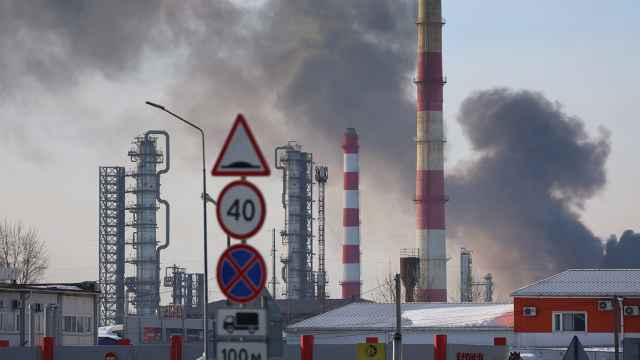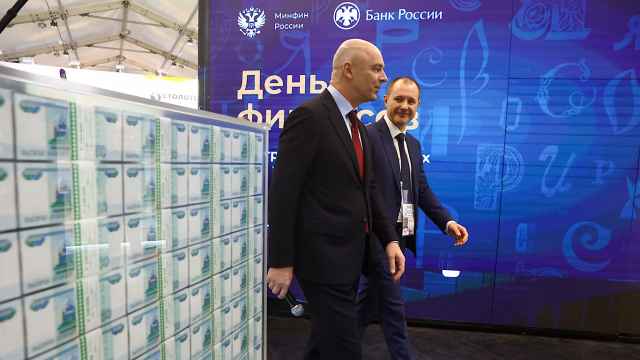Russia collected 888.6 billion rubles ($9.7 billion) in taxes from oil and gas producers in October, a 27% decline from the same month last year, Russia’s Finance Ministry said Thursday.
The latest figures come as falling crude prices, a stronger ruble and tightening Western sanctions continue to cut into oil and gas revenue that is critical to Russia’s federal budget.
Revenue from the mineral extraction tax, a key source of budget income, also fell 26% year-on-year to 671.3 billion rubles.
Oil and gas revenues totaled 7.5 trillion rubles over the first 10 months of 2025, down 2 trillion from 9.54 trillion a year earlier.
The pace of decline has accelerated steadily, from 14% in the first five months of the year to 21% by October.
The U.S. in late October announced new sanctions targeting Rosneft and Lukoil, Russia’s two largest oil companies, after President Donald Trump's efforts to mediate an end to the war in Ukraine did not yield a breakthrough.
Together, the two firms account for about half of Russia’s crude exports, or 2.2 million barrels per day.
Around 70% of Russia’s seaborne oil exports are now affected by U.S. restrictions.
A 5-10% drop in Rosneft and Lukoil exports combined with wider discounts on Russian crude could cost the state budget up to 120 billion rubles ($1.3 billion) per month, according to Vladimir Chernov, an analyst at Freedom Finance Global.
Oil prices have added to the pressure.
The average price of Russia’s Urals crude fell to $53.99 a barrel in October, according to the Economic Development Ministry, below both the government’s initial forecast of $70 and its later downward revision to $56.
Economist Yegor Susin warned that oil and gas revenue shortfalls could deepen in November and December if prices remain low.
The government’s 2025 budget initially projected 10.94 trillion rubles in oil and gas income, with 1.8 trillion expected to be transferred to the National Wealth Fund.
But falling oil prices and a strong ruble forced the Finance Ministry to revise its outlook, now expecting a 22% shortfall to 8.6 trillion rubles. The ministry does not anticipate any significant recovery in hydrocarbon revenues over the next three years.
According to the latest draft budget, oil and gas revenues are projected at 8.9 trillion rubles in 2026, 9 trillion in 2027 and 9.7 trillion in 2028 — still 20%, 19% and 13% lower, respectively, than in 2024.
To plug the widening fiscal gap, which is expected to reach 5.7 trillion rubles this year and more than 10 trillion in the next three, the government plans to rely on higher taxes from non-oil sectors and a surge in public borrowing.
Starting next year, value-added tax (VAT) will rise to 22%, small business taxes will increase sharply and the Finance Ministry aims to raise around 12 trillion rubles in new debt.
A Message from The Moscow Times:
Dear readers,
We are facing unprecedented challenges. Russia's Prosecutor General's Office has designated The Moscow Times as an "undesirable" organization, criminalizing our work and putting our staff at risk of prosecution. This follows our earlier unjust labeling as a "foreign agent."
These actions are direct attempts to silence independent journalism in Russia. The authorities claim our work "discredits the decisions of the Russian leadership." We see things differently: we strive to provide accurate, unbiased reporting on Russia.
We, the journalists of The Moscow Times, refuse to be silenced. But to continue our work, we need your help.
Your support, no matter how small, makes a world of difference. If you can, please support us monthly starting from just $2. It's quick to set up, and every contribution makes a significant impact.
By supporting The Moscow Times, you're defending open, independent journalism in the face of repression. Thank you for standing with us.
Remind me later.






